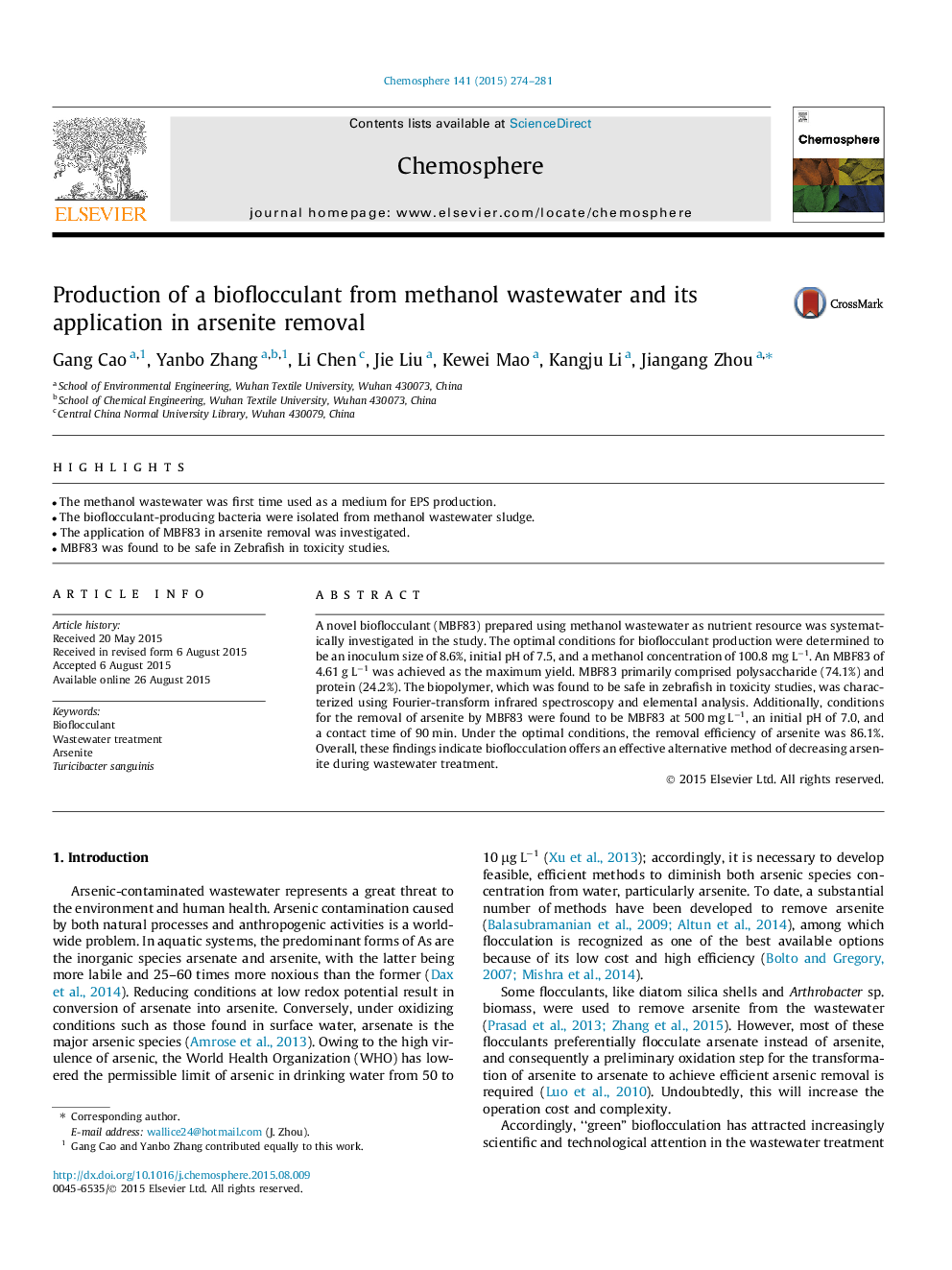| Article ID | Journal | Published Year | Pages | File Type |
|---|---|---|---|---|
| 6307389 | Chemosphere | 2015 | 8 Pages |
Abstract
A novel bioflocculant (MBF83) prepared using methanol wastewater as nutrient resource was systematically investigated in the study. The optimal conditions for bioflocculant production were determined to be an inoculum size of 8.6%, initial pH of 7.5, and a methanol concentration of 100.8 mg Lâ1. An MBF83 of 4.61 g Lâ1 was achieved as the maximum yield. MBF83 primarily comprised polysaccharide (74.1%) and protein (24.2%). The biopolymer, which was found to be safe in zebrafish in toxicity studies, was characterized using Fourier-transform infrared spectroscopy and elemental analysis. Additionally, conditions for the removal of arsenite by MBF83 were found to be MBF83 at 500 mg Lâ1, an initial pH of 7.0, and a contact time of 90 min. Under the optimal conditions, the removal efficiency of arsenite was 86.1%. Overall, these findings indicate bioflocculation offers an effective alternative method of decreasing arsenite during wastewater treatment.
Related Topics
Life Sciences
Environmental Science
Environmental Chemistry
Authors
Gang Cao, Yanbo Zhang, Li Chen, Jie Liu, Kewei Mao, Kangju Li, Jiangang Zhou,
